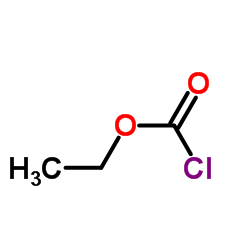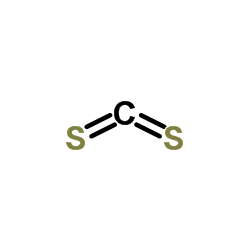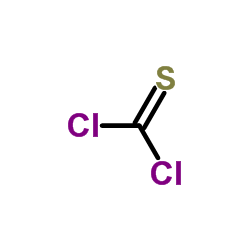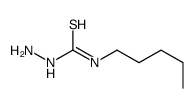629-12-9
| 中文名 | 异硫氰酸戊酯 |
|---|---|
| 英文名 | pentyl isothiocyanate |
| 中文别名 |
1-硫代异氰酸戊酯
1-戊基异硫氰酸酯 |
| 英文别名 |
1-isothiocyanatopentane
EINECS 211-075-6 MFCD00014444 |
| 密度 | 0.93 |
|---|---|
| 沸点 | 95 °C |
| 分子式 | C6H11NS |
| 分子量 | 129.22300 |
| 闪点 | 32°C |
| 精确质量 | 129.06100 |
| PSA | 44.45000 |
| LogP | 2.27940 |
| 折射率 | 1.4965 |
| 储存条件 | 存放在充有干爽惰性气体的容器内,并放在阴凉,干爽处。储存的地方必须上锁,钥匙必须交给技术专家和他们的助手保管。避免湿气和水分。远离氧化剂。切勿与酸存放在一起。 |
| 稳定性 | 远离氧化剂,水分,酒精,胺。 |
| 分子结构 | 1、 摩尔折射率:40.38 2、 摩尔体积(m3/mol):141.2 3、 等张比容(90.2K):327.0 4、 表面张力(dyne/cm):28.7 5、 极化率(10-24cm3):16.01 |
| 计算化学 | 1.疏水参数计算参考值(XlogP):无 2.氢键供体数量:0 3.氢键受体数量:2 4.可旋转化学键数量:4 5.互变异构体数量:无 6.拓扑分子极性表面积44.4 7.重原子数量:8 8.表面电荷:0 9.复杂度:84.5 10.同位素原子数量:0 11.确定原子立构中心数量:0 12.不确定原子立构中心数量:0 13.确定化学键立构中心数量:0 14.不确定化学键立构中心数量:0 15.共价键单元数量:1 |
| 更多 | 1. 性状:无色液体。 2. 密度(g/mL,25/4℃):0.93 3. 相对蒸汽密度(g/mL,空气=1):未确定 4. 熔点(ºC):95 5. 沸点(ºC,常压):191-193 6. 沸点(ºC,5.2kPa):未确定 7. 折射率:1.4965 8. 闪点(ºC):32 9. 比旋光度(º):未确定 10. 自燃点或引燃温度(ºC):未确定 11. 蒸气压(kPa,25ºC):未确定 12. 饱和蒸气压(kPa,60ºC):未确定 13. 燃烧热(KJ/mol):未确定 14. 临界温度(ºC):未确定 15. 临界压力(KPa):未确定 16. 油水(辛醇/水)分配系数的对数值:未确定 17. 爆炸上限(%,V/V):未确定 18. 爆炸下限(%,V/V):未确定 19. 溶解性:与水可水解。 |
Synonym:n-Amylisothiocyanat Section 2 - COMPOSITION, INFORMATION ON INGREDIENTS
Risk Phrases: 20/21/22 34 Section 3 - HAZARDS IDENTIFICATION EMERGENCY OVERVIEW
Harmful by inhalation, in contact with skin and if swallowed. Causes burns.Moisture sensitive. Potential Health Effects Eye: Causes eye burns. Lachrymator (substance which increases the flow of tears). Skin: Harmful if absorbed through the skin. Causes skin burns. Ingestion: Harmful if swallowed. Causes gastrointestinal tract burns. Inhalation: Harmful if inhaled. Causes chemical burns to the respiratory tract. Chronic: Not available. Section 4 - FIRST AID MEASURES Eyes: Immediately flush eyes with plenty of water for at least 15 minutes, occasionally lifting the upper and lower eyelids. Get medical aid immediately. Skin: Get medical aid immediately. Immediately flush skin with plenty of water for at least 15 minutes while removing contaminated clothing and shoes. Ingestion: Do not induce vomiting. Get medical aid immediately. Inhalation: Get medical aid immediately. Remove from exposure and move to fresh air immediately. If not breathing, give artificial respiration. If breathing is difficult, give oxygen. Notes to Physician: Treat symptomatically and supportively. Section 5 - FIRE FIGHTING MEASURES General Information: As in any fire, wear a self-contained breathing apparatus in pressure-demand, MSHA/NIOSH (approved or equivalent), and full protective gear. Extinguishing Media: Use foam, dry chemical, or carbon dioxide. Section 6 - ACCIDENTAL RELEASE MEASURES General Information: Use proper personal protective equipment as indicated in Section 8. Spills/Leaks: Absorb spill with inert material (e.g. vermiculite, sand or earth), then place in suitable container. Section 7 - HANDLING and STORAGE Handling: Do not breathe dust, vapor, mist, or gas. Do not get in eyes, on skin, or on clothing. Use only in a chemical fume hood. Storage: Store in a cool, dry place. Store in a tightly closed container. Corrosives area. Store under nitrogen. Section 8 - EXPOSURE CONTROLS, PERSONAL PROTECTION Engineering Controls: Facilities storing or utilizing this material should be equipped with an eyewash facility and a safety shower. Use adequate ventilation to keep airborne concentrations low. Exposure Limits CAS# 629-12-9: Personal Protective Equipment Eyes: Not available. Skin: Wear appropriate protective gloves to prevent skin exposure. Clothing: Wear appropriate protective clothing to prevent skin exposure. Respirators: Follow the OSHA respirator regulations found in 29 CFR 1910.134 or European Standard EN 149. Use a NIOSH/MSHA or European Standard EN 149 approved respirator if exposure limits are exceeded or if irritation or other symptoms are experienced. Section 9 - PHYSICAL AND CHEMICAL PROPERTIES Physical State: Liquid Color: colorless Odor: Not available. pH: Not available. Vapor Pressure: Not available. Viscosity: Not available. Boiling Point: 117 - 119 deg C @70mmHg Freezing/Melting Point: Not available. Autoignition Temperature: Not available. Flash Point: Not available. Explosion Limits, lower: Not available. Explosion Limits, upper: Not available. Decomposition Temperature: Solubility in water: Specific Gravity/Density: 0.93 Molecular Formula: C6H11NS Molecular Weight: 129 Section 10 - STABILITY AND REACTIVITY Chemical Stability: Not available. Conditions to Avoid: Incompatible materials, exposure to moist air or water. Incompatibilities with Other Materials: Bases, amines, strong oxidizing agents. Hazardous Decomposition Products: Nitrogen oxides, carbon monoxide, oxides of sulfur, carbon dioxide. Hazardous Polymerization: Has not been reported Section 11 - TOXICOLOGICAL INFORMATION RTECS#: CAS# 629-12-9 unlisted. LD50/LC50: Not available. Carcinogenicity: Pentyl isothiocyanate - Not listed by ACGIH, IARC, or NTP. Section 12 - ECOLOGICAL INFORMATION Section 13 - DISPOSAL CONSIDERATIONS Dispose of in a manner consistent with federal, state, and local regulations. Section 14 - TRANSPORT INFORMATION IATA Shipping Name: CORROSIVE LIQUID, TOXIC, N.O.S.* Hazard Class: 8 (6.1) UN Number: 2922 Packing Group: III IMO Shipping Name: CORROSIVE LIQUID, TOXIC, N.O.S. Hazard Class: 8 (6.1) UN Number: 2922 Packing Group: III RID/ADR Shipping Name: CORROSIVE LIQUID, TOXIC, N.O.S. Hazard Class: 8 (6.1) UN Number: 2922 Packing group: III Section 15 - REGULATORY INFORMATION European/International Regulations European Labeling in Accordance with EC Directives Hazard Symbols: C Risk Phrases: R 20/21/22 Harmful by inhalation, in contact with skin and if swallowed. R 34 Causes burns. Safety Phrases: S 26 In case of contact with eyes, rinse immediately with plenty of water and seek medical advice. S 36/37/39 Wear suitable protective clothing, gloves and eye/face protection. S 45 In case of accident or if you feel unwell, seek medical advice immediately (show the label where possible). WGK (Water Danger/Protection) CAS# 629-12-9: No information available. Canada None of the chemicals in this product are listed on the DSL/NDSL list. CAS# 629-12-9 is not listed on Canada's Ingredient Disclosure List. US FEDERAL TSCA CAS# 629-12-9 is not listed on the TSCA inventory. It is for research and development use only. SECTION 16 - ADDITIONAL INFORMATION N/A |
|
生态学数据: 对水稍微有危害的,不要让未稀释或者大量产品接触地下水,水道或者污水系统。若无政府许可,勿将材料排入周围环境。
|
| 风险声明 (欧洲) | R10 |
|---|---|
| 安全声明 (欧洲) | S26-S36/37/39 |
| 危险品运输编码 | 3080 |
| 包装等级 | III |
| 危险类别 | 8 |
|
~90% 
629-12-9 |
| 文献:The Green Cross Corporation Patent: US5750545 A1, 1998 ; |
|
~61% 
629-12-9 |
| 文献:Munch, Henrik; Hansen, Jon S.; Pittelkow, Michael; Christensen, Jorn B.; Boas, Ulrik Tetrahedron Letters, 2008 , vol. 49, # 19 p. 3117 - 3119 |
|
~88% 
629-12-9 |
| 文献:Kim; Song; Ryu Synthetic Communications, 1994 , vol. 24, # 8 p. 1101 - 1105 |
|
~% 
629-12-9 |
| 文献:Tetrahedron Letters, , vol. 38, # 9 p. 1597 - 1598 |
|
~% 
629-12-9 |
| 文献:Medicinal Chemistry Research, , vol. 22, # 7 p. 3119 - 3125 |
|
~% 
629-12-9 |
| 文献:Medicinal Chemistry Research, , vol. 22, # 7 p. 3119 - 3125 |
|
~% 
629-12-9 |
| 文献:Recueil des Travaux Chimiques des Pays-Bas, , vol. 45, p. 422 Chem. News J. Ind. Sci., , vol. 134, p. 5 Chem. Zentralbl., , vol. 98, # I p. 1300 |
| 上游产品 6 | |
|---|---|
| 下游产品 2 | |










![Hydrazinecarboxamide, 2-[(pentylamino)thioxomethyl]-结构式](https://image.chemsrc.com/caspic/412/6318-96-3.png)
